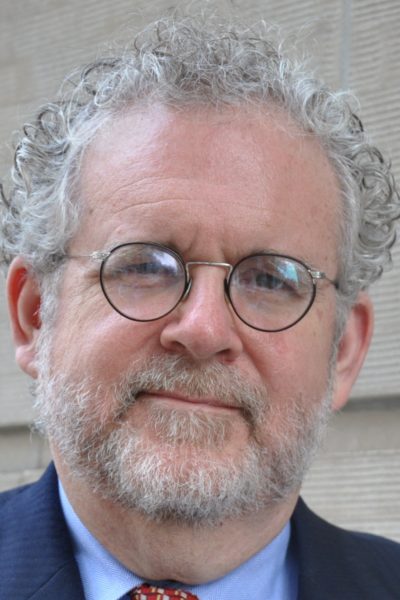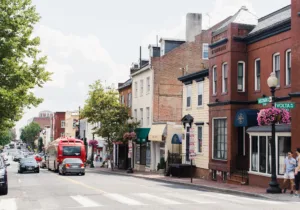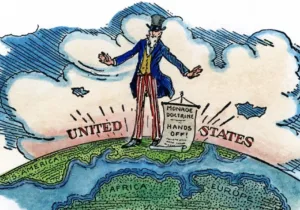This essay first appeared in Providence’s Fall 2015 print edition. To receive the next print editions, please subscribe.
As a college professor and employer of budding journalists, I spend a lot of time with Millennials. In fact, I spend more time with the rising generation than I do with the, well, falling generation to which I belong – the Boomers. And as I listen to my colleagues and students, I hear much that reminds of my own misspent youth and of my contemporaries when we were getting ready to charge out and change the world.
Millennials and Boomers are alike in many ways. Both generations are large: there are so many of us that we developed a stronger identity and culture than most generational cohorts do. Both generations see themselves as both the products and the agents of change. The Boomers grew up during the Civil Rights and the feminist revolution; we were forced to question the guiding assumptions of American society and culture as part of figuring out who we were and what we wanted to do with our lives. Millennials have similar problems; the old assumptions and conventions are falling apart, and Millennials need to think through what it means to live in a much more ethnically, racially, and religiously diverse societies than past generations in the United States remember.
Both generations also came of age in times of economic pain; the inflation and high unemployment of the 1970s came as a very unwelcome shock to Baby Boomers who passed their childhood and adolescence in one of America’s longest periods of prosperity. Millennials have been there too; the two longest back to back economic expansions in American history came to a juddering halt with the 2008 financial crisis; Millennials’ introduction to the real world has been harsh.
There are other similarities between the generations. Both generations grew up at a time of social change, turmoil and global and national unrest, and both generations were seen as less conventionally religious than their parents. Both generations grew up in the shadows of unpopular wars; both generations felt strongly called to embrace careers dealing with social injustice, environmental crises, and global development. Neither generation put a high priority on the institutional church.
That last is one of the places where I think we Boomers went wrong. Most of us (at least of that part of the generation that was interested in public service) ended up putting our energy into anti-poverty programs, human rights NGOs, environmental organizations, and so on. All of these are much stronger now than when my generation first got involved with them. The enormous growth of the NGO sector both in the United States and abroad has been one of the hallmarks of the Boomers’ engagement with the world.
Looking back, I think we got it wrong. In our eagerness to change the world, and to embrace the tumult and challenge of our times, we overlooked the most important NGO of all: the Church of Christ.
The greatest paradox of the last fifty years in the United States has been the contrast between the enormous growth of the non-profit sector and the collapse in the social capital of poor and middle class American communities. We have more organizations with more money working to solve more social problems than ever before – and more children are growing up in broken homes, more adults are disconnected from communities of fellowship and solidarity, more drugs are wreaking greater havoc in more families and more individual lives than ever before, and more people are cut off from full participation in social life than before my generation, with its great ambitions to change and improve the world, came on the scene.
As a generation, I think we made a simple but costly mistake. We were the builders who cast aside the stone that turns out to be the cornerstone of the whole building. We never really understood, at least most of us didn’t, that strong local neighborhood church communities provide the necessary structure for a just and progressive society.
Charles Murray’s research in Coming Apart documents the heart wrenching erosion of social capital that took place while the Baby Boom was out saving the world.
In 1963, fewer than 5% of U.S. households, of any race, were headed by a divorced or separated person; the white illegitimacy ratio was under 3%, although it had begun to rise worryingly in the black community already; and 99% of the public declared a religious preference, with half saying they had attended church within the last seven days. A generation later, all of those numbers were worse by a wide margin. Among whites, for instance, illegitimacy was up to approximately 30%. In 2010, 21% of middle-aged whites declared no religious affiliation, and about a third of the religious were “Chreaster” observant, or attended church on only Christmas and Easter, at best. According to Pew, in 2013 less than half of all U.S. children lived in a home with two married parents still in their first marriage.
Some of these problems can, over time, be alleviated by changes in policy and law. And bad government policies make social problems worse. But these lives won’t be healed by policy memos, and political change is not the most important thing most of these people need right away.
What most poor Americans today need more than anything else doesn’t come from government programs and bureaucratic institutions. Or to put it another way, most of government institutions – from schools to hospitals to law enforcement agencies – tend to offer the worst services to the people who need them most. It is the poorest neighborhoods that have the most brutal cops, the worst schools, and the worst medical facilities. And the most important needs so many Americans have – a stable, caring adult male for a fatherless boy; a trusted, mature confidant who can help a young girl in a dysfunctional family steer towards a stable and happy adulthood; a volunteer reading tutor who helps the shy kid in the back of the room begin to read with confidence and skill; the close knit group of friends who hold each other accountable as they encounter the temptations of urban life: people like these come out of communities, not bureaucracies.
The only institution the United States has that can meet these needs on anything like the scale required is the institution that the Boomers by and large neglected: the neighborhood church.
This is a mistake the Millennials can’t afford to make. It is not just the mainline denominations that face a crisis of ageing and shrinking congregations. We need more strong congregations building mature Christians. We need more outreach to the socially isolated and the marginalized, and we need Christian communities who are strong enough to reach out with the compassion and healing so many lost and lonely Americans badly need. There is no other way; Millennial Christians will not have the luxury Boomers did of taking the health of the church for granted.
For Millennials, the integration of their lives as believers living intentionally in Christian communities and their vocations to serve the wider society won’t be a luxury. If the church continues to retreat and to withdraw as an institution, if the proclamation of the gospel fails to reach those who need it most, the goals of social and political reform so many Millennials seek will not be reached.
One hundred twenty-five years ago, many American Christians heard the message of the Social Gospel and believed that responding to the needs of the society around them meant disentangling themselves from doctrinal orthodoxy and what they saw as inward facing churches and denominations. That impetus was very much a part of the Baby Boom generation’s ethos of service.
The results for both the church and the world have not been healthy, and it will fall to the Millennial generation either to strike a new and more constructive balance, or to see both the church and society continue to suffer and fade.
—
Walter Russell Mead is the James Clarke Chace Professor of Foreign Affairs and Humanities at Bard College, the Distinguished Scholar in American Strategy and Statesmanship for the Hudson Institute, and the Editor-at-Large for The American Interest. He previously served as the Henry A. Kissinger Senior Fellow for U.S. Foreign Policy for the Council on Foreign Relations. His works include God and Gold: Britain, America, and the Making of the Modern World (2008), and he also writes for the Wall Street Journal and Foreign Affairs.
Photo Credit: Mercy Me concert/worship service in 2009, by susieq3c via Flickr.






